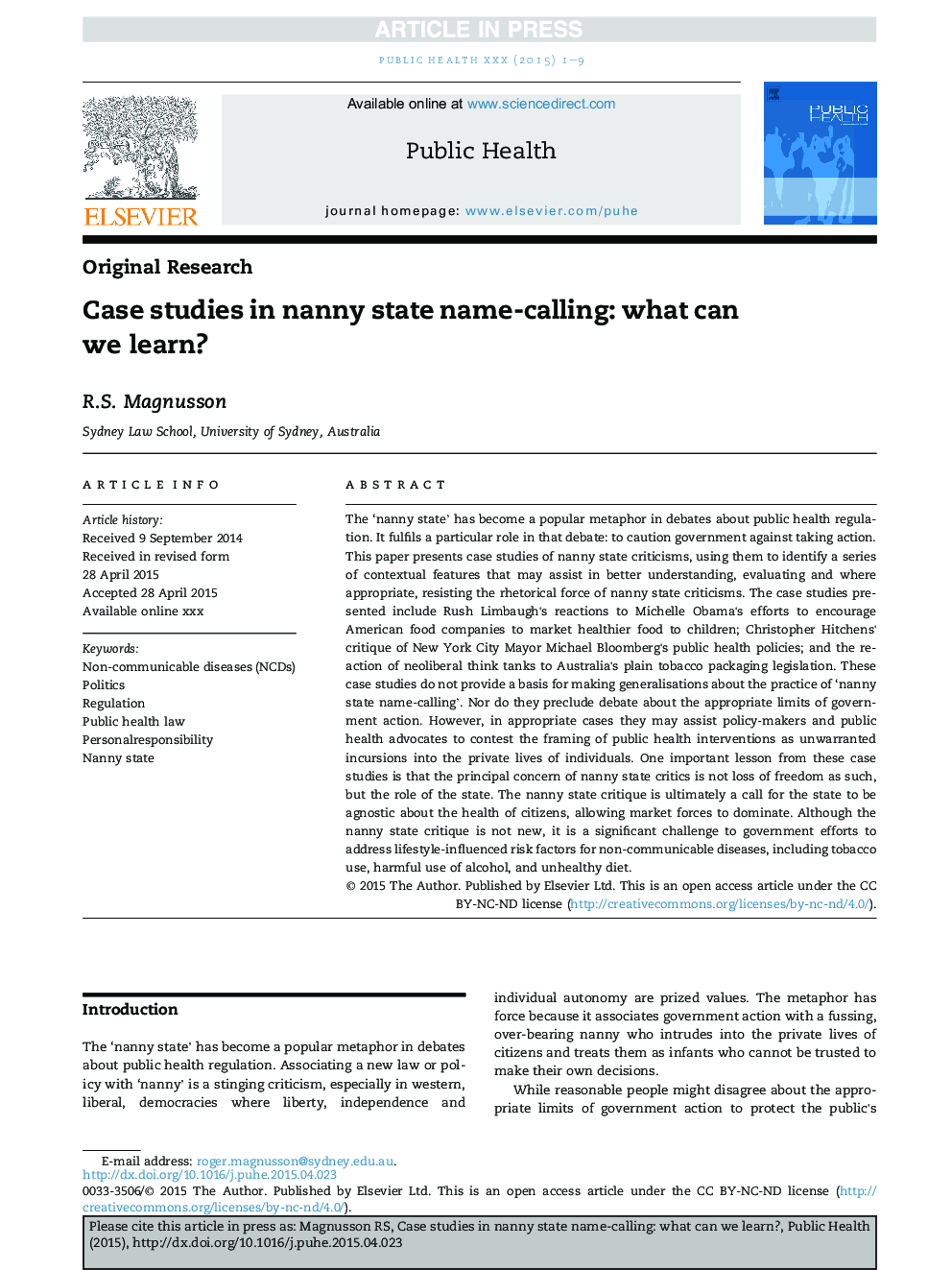| Article ID | Journal | Published Year | Pages | File Type |
|---|---|---|---|---|
| 10516220 | Public Health | 2015 | 9 Pages |
Abstract
The 'nanny state' has become a popular metaphor in debates about public health regulation. It fulfils a particular role in that debate: to caution government against taking action. This paper presents case studies of nanny state criticisms, using them to identify a series of contextual features that may assist in better understanding, evaluating and where appropriate, resisting the rhetorical force of nanny state criticisms. The case studies presented include Rush Limbaugh's reactions to Michelle Obama's efforts to encourage American food companies to market healthier food to children; Christopher Hitchens' critique of New York City Mayor Michael Bloomberg's public health policies; and the reaction of neoliberal think tanks to Australia's plain tobacco packaging legislation. These case studies do not provide a basis for making generalisations about the practice of 'nanny state name-calling'. Nor do they preclude debate about the appropriate limits of government action. However, in appropriate cases they may assist policy-makers and public health advocates to contest the framing of public health interventions as unwarranted incursions into the private lives of individuals. One important lesson from these case studies is that the principal concern of nanny state critics is not loss of freedom as such, but the role of the state. The nanny state critique is ultimately a call for the state to be agnostic about the health of citizens, allowing market forces to dominate. Although the nanny state critique is not new, it is a significant challenge to government efforts to address lifestyle-influenced risk factors for non-communicable diseases, including tobacco use, harmful use of alcohol, and unhealthy diet.
Related Topics
Health Sciences
Medicine and Dentistry
Infectious Diseases
Authors
R.S. Magnusson,
